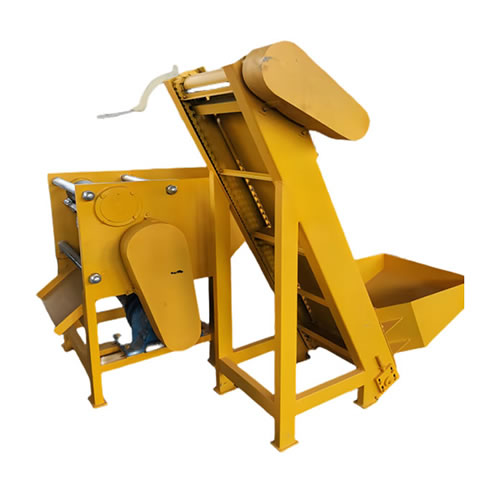The service is thoughtful and considerate Henan brand lithium battery discharge equipment consolidates the foundation of Jibuti's spent lithium-ion power battery recycling industry
### Djibouti's Industrial Development Goals
Djibouti aims to diversify its economy and reduce dependency on commerce and services. The industrial development goals focus on:
1. **Infrastructure Development**: Improving transportation networks, energy supply, and digital connectivity to attract investments.
2. **Free Trade Zone Expansion**: Enhancing the Doraleh Free Trade Zone to boost exports and imports.
3. **Human Resource Development**: Investing in education and vocational training to build a skilled workforce.
4. **Tourism Promotion**: Leveraging geographical advantages to develop tourism-related industries.
5. **Sustainable Practices**: Promoting eco-friendly industries to ensure long-term sustainability.
6. **Private Sector Engagement**: Encouraging partnerships with private investors for industrial projects.
7. **Regional Integration**: Collaborating with neighboring countries to enhance economic cooperation.
8. **Innovation and Technology**: Supporting tech startups and innovation hubs to drive modernization.
9. **Agricultural Value Addition**: Developing agro-processing industries to add value to agricultural produce.
10. **Economic Diversification**: Reducing reliance on traditional sectors by promoting new industrial activities.
By achieving these goals, Djibouti seeks to transform its economy into a more resilient and diversified one, contributing to overall national growth and development.

The recycling and reuse technology of waste lithium-ion power batteries has made significant progress. Currently, there are two main methods for recycling and reusing waste batteries: cascade utilization and recycling. Cascade utilization involves selecting batteries with good performance from retired power batteries for reuse in other fields such as energy storage, electric bicycles, and low-speed electric vehicles. In terms of recycling technology, with the refinement of policies, technological breakthroughs, and integration of the industrial chain, it is expected that after 2025, the lithium battery recycling industry will gradually shift from disorderly competition to large-scale and professional development, becoming a key pillar of the global circular economy. However, the actual recovery volume and market size of waste lithium-ion batteries in 2024 have decreased compared to the previous year due to the impact of raw material prices. Looking forward to 2030, the recovery volume of lithium-ion batteries in China is expected to reach 4.246 million tons.

### Critical Challenges in Lithium Battery Discharge Equipment
Lithium battery discharge equipment faces several key challenges that need to be addressed to ensure efficient and safe operation. One of the primary challenges is thermal management. During the discharge process, lithium batteries generate heat, which, if not adequately dissipated, can lead to overheating, reduced battery lifespan, and potential safety hazards such as thermal runaway. Effective cooling mechanisms, such as liquid cooling or advanced air cooling systems, are essential to maintain optimal operating temperatures.
Another significant challenge is ensuring accurate state-of-charge (SoC) estimation. Inaccurate SoC readings can result in over-discharge or under-discharge, both of which can degrade battery performance and safety. Advanced algorithms and sensor technologies are required to monitor and estimate the SoC with high precision.
Battery balancing is also a critical issue. In a multi-cell lithium battery pack, individual cells may have slight differences in capacity and discharge rates. Without proper balancing, some cells may become over-discharged while others are under-discharged, leading to reduced overall battery efficiency and lifespan. Implementing effective cell balancing techniques is crucial for maintaining battery health.
Furthermore, the discharge equipment must be capable of handling high discharge rates without compromising safety. High discharge rates can cause increased stress on the battery cells, potentially leading to capacity loss and safety issues. The design and components of the discharge equipment must be robust enough to manage these high rates safely.
Lastly, compatibility with different types of lithium batteries and varying discharge profiles adds another layer of complexity. The equipment must be versatile enough to accommodate various battery chemistries and discharge requirements.
In summary, addressing these critical challenges—thermal management, accurate SoC estimation, battery balancing, high discharge rate handling, and compatibility—is essential for the successful development and operation of lithium battery discharge equipment.
In summary, Maoxin Machinery's lithium battery discharge equipment, with its high-quality products and services, has provided strong support for the recycling and reuse of waste lithium-ion power batteries in Djibouti and even more countries and regions. In the future development, Maoxin Machinery will continue to adhere to the principle of "valuing contracts and keeping faith", providing more practical and reliable products and services to customers in Djibouti who are engaged in the recycling and reuse of waste lithium-ion power batteries. To our customers in Djibouti involved in the recycling and reuse of waste lithium-ion power batteries: thank you for your continuous companionship and support. May all our friends who use Maoxin Machinery's lithium battery discharge equipment for the recycling and reuse of waste lithium-ion power batteries in Djibouti achieve success in their careers, have harmonious families, stay healthy, and may everything go smoothly for you in the new year.